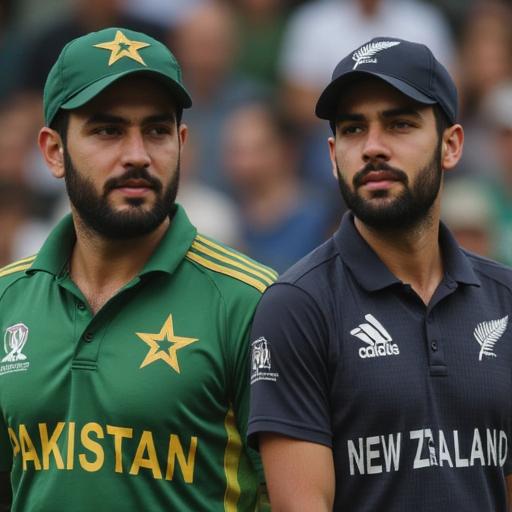Pakistan Cricket Team Coach: Navigating the Shifting Sands of Success
Pakistan Cricket Team Coach: Navigating the Shifting Sands of Success
Pakistan cricket, a nation steeped in passion and unparalleled talent, often finds itself wrestling with the challenge of consistent excellence. The role of the national team coach is crucial, a pivotal figure in shaping the team’s trajectory and determining its performance on the global stage. From legendary triumphs to frustrating setbacks, the coaches who have steered the green-clad warriors have left an indelible mark on the game’s history.

This article delves deep into the complexities of coaching the Pakistan cricket team, exploring the challenges, the triumphs, and the evolution of the role through time.
The Evolution of a Coaching Philosophy
The Pakistan cricket team has seen a dynamic range of coaching styles over the years. Some coaches have favored a more aggressive, attacking approach, reflecting the team’s often fiery temperament on the field. Others have emphasized meticulous technique and detailed planning, aiming for a more calculated and structured approach to the game. This fluctuating approach, while often reflective of the team’s evolving needs, also underscores the importance of finding a style that resonates with the players, their skill sets, and the team dynamics.
A key factor in the success or failure of a coach is their ability to adapt to the ever-changing landscape of international cricket. The demands of the game have evolved significantly in terms of fitness, mental fortitude, and the tactical intricacies employed. Coaches must not only possess a profound understanding of the game but also the adaptability to navigate these evolving challenges.
Beyond the Tactical Blueprint: Building the Team Spirit
Coaching is far more than just chalk-talk and tactical diagrams. A coach must foster a culture of unity, discipline, and mutual respect within the squad. This is perhaps even more critical in a team known for its vibrant, at times intense, personality. Building a team that functions not just as individuals, but as a cohesive unit, is vital for consistently high levels of performance.
Players, like any other group, have individual needs, strengths, and weaknesses. Successful coaches must understand and utilize these variations, creating a nurturing environment in which players feel valued, supported, and encouraged to reach their full potential. The art lies in finding a balance between pushing players to perform their best while also maintaining a supportive and positive environment.
The Crucial Role of Mental Strength
International cricket is a game of high stakes. Players face immense pressure, scrutiny, and the burden of national expectations. The role of a coach extends to nurturing the mental resilience of the players, equipping them to handle the emotional roller coaster of a high-profile sporting career.
Developing strong mental fortitude is crucial for overcoming setbacks, maintaining composure under pressure, and performing consistently under intense scrutiny. Effective coaches must be adept at providing the psychological support needed to maintain focus and motivation.
Success Stories and Setbacks: Learning from History
Pakistan has experienced both glorious victories and agonizing defeats throughout its cricketing history. The impact of different coaches on the team’s performance has varied considerably. Some periods have seen remarkable success, culminating in Test series wins and high-profile tournament victories. Other times have been characterized by inconsistent performances and struggles to compete at the highest level.
A deep dive into these past experiences offers invaluable insights into the challenges and opportunities inherent in leading the Pakistan team. Understanding these past successes and failures allows for a more informed perspective on the current landscape and the path forward.
The Challenges of the Modern Era
The landscape of international cricket is ever-shifting. The rising influence of other teams, the changing batting styles, and the increasingly sophisticated bowling attacks present an evolving set of challenges. Coaches need to constantly adapt and innovate to keep pace with these dynamic trends. Innovation in training methods, scouting strategies, and game preparation techniques will be essential to maintaining the edge.
Beyond the evolving technical aspects of the game, coaches face additional challenges, such as managing player egos, maintaining team cohesion, and adapting to changing team structures.
The Coach’s Vision
A successful coach for Pakistan’s team will need a clear and consistent vision for the team’s future. This vision must reflect the values and aspirations of both the players and the team. A strong sense of direction provides a framework for decision-making, allowing the team to move forward together toward shared goals. This requires deep understanding of the players’ individual strengths, weaknesses, and ambitions, and how these can be channeled to produce team synergy.
The ability to build a strong and cohesive team is essential for sustained success in international cricket. This involves not just tactical planning but also understanding the human dynamics within the team.
The Future of Pakistan Cricket
The future of Pakistan cricket, and the role of its coaches, is intertwined with the need for continuous learning and innovation. The team must adapt to the ever-changing demands of the international stage while simultaneously nurturing the development of emerging talent.
The current and future coaches of the Pakistan cricket team will face a range of challenges – maintaining team spirit, managing player egos, staying ahead of the tactical curve, and nurturing young talent. Ultimately, the long-term success of the team depends on the ability of the coach to adapt to these changes, learn from past experiences, and implement a vision that resonates with players and supporters alike.
Only by understanding the complexities of this role and learning from the successes and setbacks of past coaches can we truly appreciate the gravity of the task ahead. The challenges remain significant, yet the potential remains immense. The future of Pakistan cricket rests, in large measure, on the shoulders of its coaches.